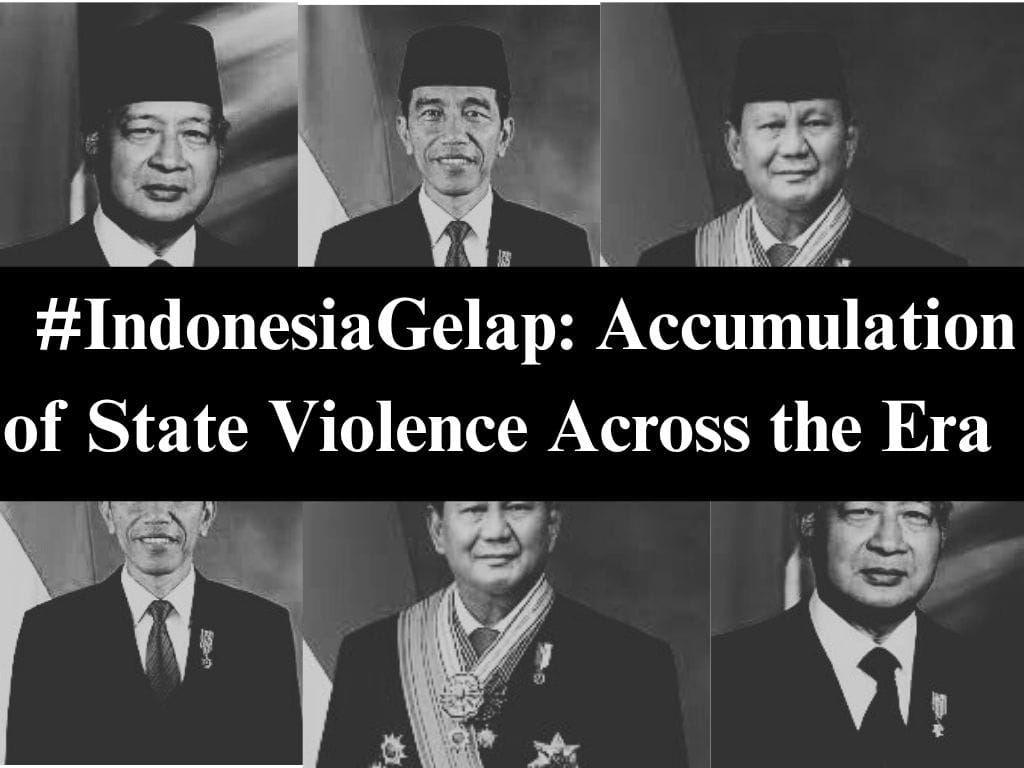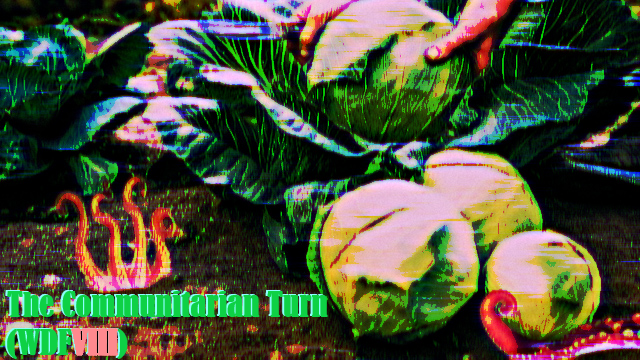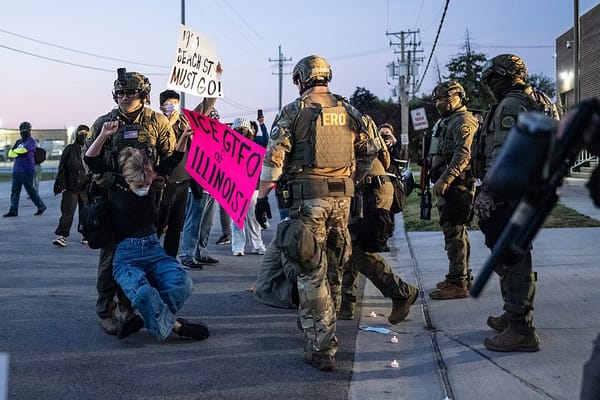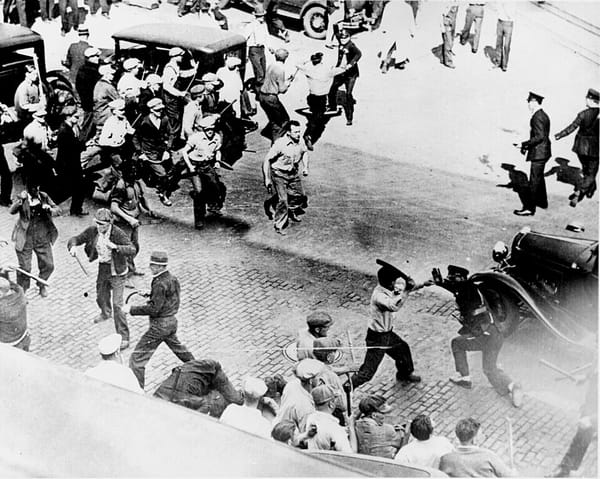#IndonesiaGelap (#DarkIndonesia): Accumulation of State Violence Across the Era

The First Appearance of #IndonesiaGelap (#DarkIndonesia)
The hashtag #IndonesiaGelap (#DarkIndonesia) first appeared as a name for a series of demonstrations that took place in various cities in Indonesia in February 2025. This series of actions emerged in response to various policies of the Prabowo-Gibran regime that not only ignored public interests but also oppressed the people. One of them was about economic policy. Through Presidential Instruction No. 1 of 2025 issued in January, the Prabowo-Gibran regime planned massive budget cuts that had a negative impact on various aspects such as increasing unemployment rates, reducing the fulfillment of basic public rights, decreasing the quality of education, and so on.
This massive budget cut is known as “budget efficiency”. Under the pretext of implementing state budget efficiency, the Prabowo-Gibran regime cut one of the education budgets, which had a significant impact on several strategic spending items that support educational activities, including several scholarship programs, funding assistance for state universities, as well as non-civil servant teacher allowances, lecturer allowances, and several other programs. This has an impact not only on the quality of education itself, but also on the welfare of the teaching staff. Honorary teachers and lecturers are two of the most affected by this policy.
The pretext of efficiency was also later used as justification by the government to shirk its human rights responsibilities, especially for victims of past gross human rights violations. This is because budget cuts also targeted several national human rights institutions such as the Witness and Victim Protection Agency (Lembaga Perlindungan Saksi dan Korban or LPSK), the National Human Rights Commission (Komisi Nasional Hak Asasi Manusia or Komnas HAM), and the National Commission on Violence Against Women (Komisi Nasional Anti Kekerasan terhadap Perempuan or Komnas Perempuan).
The budget cuts to these human rights institutions have had a negative impact on many victims of past gross human rights violations. The findings of the Justice and Truth Coalition (Koalisi Keadilan dan Pengungkapan Kebenaran or KKPK) revealed that a number of victims of past gross human rights violations are no longer able to access their rights to reparation, which is the responsibility of the state. Some of them are no longer receiving medical assistance because the budget cuts have impacted the financing of hospitals and health facilities. Not only that, the verification process for victims of past gross human rights violations in various places has also been hampered by cuts in operational costs for these institutions.
The budget cuts then resulted in the state not acknowledging the condition of the victims, because state acknowledgment requires the verification documents themselves. And without state acknowledgment, there will be no recovery for them.
Here it is clear that the State, in its most original nature, always seeks to escape its human rights responsibilities by compiling a mechanism containing conditions that in the process of obtaining them, are made difficult and canceled by the State itself.
The paragraphs above only discuss budget cuts targeting two sectors, namely education and rehabilitating victims of gross human rights violations, of which the negative impacts are already so big. In fact, there are still many other negative impacts that occur due to the efficiency carried out by the State while pretending that this is a step that must be taken because there is no other choice.
Indonesia Corruption Watch (ICW) found a high budget allocated for the Indonesia National Army (TNI) institution through the Ministry of Defense, the Indonesia National Police (Polri), and the Indonesian Attorney General's Office (Kejaksaan RI). The budget for these three institutions has nothing to do with the interests of the people. Thus, if the government really wants to carry out efficiency, then the Indonesia National Army, the Indonesia National Police, and the Indonesian Attorney General's Office should be the three institutions that are targeted first. In fact, they are not.
In the midst of efficiency and all its negative impacts, the privilege of two of these three institutions, namely the TNI and the Polri, is something that increasingly shows that the government is not siding with the people. The impression of how the State give privilege to these two institutions does not stand alone. In addition to the budget, these two institutions are also increasingly pampered through the creation of several laws which, again, are increasingly detrimental to the people while at the same time, increasingly benefiting them.
One of them is the enactment of the TNI Bill which was passed into the New TNI Law last March. Clearly, the law opens up opportunities for TNI soldiers to have more than one job amidst the difficulty of finding employment. That is just one example. Another example is how the TNI's authority is expanded to touch civilian spaces. More completely, the ratification of this law and all its problems have been reviewed in another article on this website.
The same regime is also working on two bills that will both harm the public and only benefit state officials. The two bills are the Draft Criminal Procedure Code which will strengthen the authority of various agencies in the law enforcement process, including the Police, and the Police Bill itself.
The strengthening of these two institutions is certainly very contradictory to the fact that these two institutions are still recorded as institutions that contribute the most to extrajudicial killings, excessive use of force, torture, various forms of human rights violations, as well as abuse of power and various other forms of violence.
As an institution, the TNI has a mountain of problems. Starting from when it was still called Indonesia Armed Force (Angkatan Bersenjata Republik Indonesia or ABRI), it was an entity that killed millions of people from 1965 to 1998, not including those who were forcibly disappeared and have not been found until now. Since the founding of the Republic of Indonesia, there have been 17 cases that have been determined by Komnas HAM as gross human rights violations, and almost all of them were committed by the military. These dozens of case do not include other human rights violations that are not categorized as serious human rights violations.
Until now, the military has also consistently contributed to violence throughout Indonesia. The Commission for the Disappeared and Victims of Violence (Komisi untuk Orang hilang dan Tindak Kekerasan or KontraS) recorded 64 incidents of violence committed by TNI soldiers against civilians in the period from October 2023 to October 2024, consisting of 37 acts of persecution, 11 acts of torture, 9 cases of intimidation, 5 inhumane acts, 3 acts of destruction, 1 case of kidnapping, and 1 case of sexual crime. These violent incidents resulted in 75 people being injured and 18 people being killed.
Not only the TNI, KontraS noted that during the 100 days of the Prabowo-Gibran regime from October 2024 to 2025 alone, there had been 136 cases of violence committed by members of the Police. This number does not include dozens of other acts of violence committed by police officers in handling various series of #IndonesiaGelap, #TolakRUUTNI, and Labor Day demonstrations from February to May 2025. Not only were hundreds of demonstrators injured due to police violence, journalists and medical personnel were also targeted.
If in just 100 days of the Prabowo-Gibran administration, they have been recorded as having committed 136 acts of violence, imagine how much violence has been committed in previous years. Based on monitoring conducted from July 2023 to June 2024, the same organization recorded 645 violent incidents involving members of the National Police, with 759 injured and 38 dead. This includes 35 extrajudicial killings that killed 37 people.
A series of facts about soldiers and police officers who often fail to carry out their duties, and often brutally commit violence, torture, and are also full of corrupt practices, extortion - and all the bad things imaginable - in carrying out their work, followed by the fact that the State under the Prabowo-Gibran administration actually wants to strengthen the two institutions without evaluating and resolving the cases of violence they commit fairly, further emphasizes the statement that the State sees the people as enemies and threats only.
The Police and the Military: the Servants of the Capitalists
The state's insistence on keeping strengthening those two human rights-violating-institutions is certainly not without reason. A series of events that have been successfully recorded and collected by various human rights activists show that all violence committed by the military, as well as the police, is almost always based on the same reason: to strengthen the state's dominance over its people by fostering fear.
One of them is that these fears are formulated, developed, and maintained in the name of maintaining national stability. The national stability in question is translated as the need for no voices that differ from the government, manifested in the elimination of anyone who opposes its policies, manifested as the elimination of anyone who opposed his policies. And this thing always happens over and over again, regardless of who the government is.
National stability is one of the absolute requirements for foreign investment for development. And in the name of development, during his ten-year government from 2014 to 2024, the Joko Widodo regime silenced anyone who opposed his developmental policies. The accusation of “going against national interests” was used as justification for a series of repressions and violence carried out in various administrative regions of Indonesia.
We can then see all of those violence actions as a form of how the State always serves the interests of capital investors, even though it means marginalizing environmental sustainability, the climate crisis, and human rights. Because, what is meant by “national interests”, which is always the reason behind all violence against the people which often results in loss of life, is nothing more than the interests of large investors and rulers, and it is hiding in the name of development, which in Jokowi era, called as national strategic projects (PSN).
Referring to the alternative report sent by the Human Rights Working Group (HRWG) representing a civil society coalition to the Committee on Civil and Political Rights (CCPR) and to the Committee on Economic, Social and Cultural Rights (CESCR) in 2024,
Data from the Indonesian Legal Aid Foundation (YLBHI) recorded high levels of criminalization of human rights and environmental defenders in PSN. Until 2023, of the 35 PSN projects advocated by legal aid institutes all over Indonesia under the auspices of YLBHI, at least 85 people were criminalized. There were 212 agrarian conflicts that resulted in 497 cases of criminalization of land rights defenders. At least 268 human rights defenders, environmental issues, and indigenous peoples were attacked.
Meanwhile, throughout 2015 to 2023, the Agrarian Reform Consortium (KPA) recorded at least 73 conflicts related to national strategic projects (PSN). Of the 161 PSN recorded as of September 2023, all of them involved the seizure of customary land, which according to the Indigenous Peoples' Alliance of the Archipelago (AMAN) occurred in 301 cases involving the seizure of 8.5 hectares of customary land in the period 2018 to 2022 alone.
The violence does not stop there. The government seems to be very aware that in order to continue its big agenda to defend the interests of capitalists to continue robbing and exploiting the people, it still needs popularity and majority support. Because that is the only legitimacy for it to remain in power and freely carry out these exploitative practices.
For that reason, the State’s need to present a populist face has emerged. That is why the government continues to issue policies based on populism; other violence is carried out by continuing stigma, discrimination, and committing human rights violations against vulnerable groups that are rejected by the majority of society.
LGBTQIA+ groups continue to be victims of discrimination and violence. Adherents of minority religions and beliefs continue to be repressed and their rights restricted, because the majority hates those who are considered different and “heretics”. Refugees are not given their rights because the majority of society hates immigrants. Minority racial groups also continue to be stigmatized. These things are consciously done by the government. Hatred of each other continues to be maintained. Because the government is aware that there are needs to be a kind of small opium given to the majority of society to lull and distract them from much bigger problems.
The arbitrary arrest of hundreds of people, criminalization, violence, and intimidation that occurred in hundreds of agrarian conflict eruptions, as well as the confiscation of hectares of customary land, including evictions, and others, were carried out by the State using its two most brutal tools: the police and the military.
This has become international knowledge. Even in one of the UN human rights forums, namely the Universal Periodic Review session in 2022 which Indonesia became the State under Review, it was stated that the armed forces are the actors who must be responsible for the structural violence that has occurred for years in Papua, and the government was recommended to conduct an investigation into it. A recommendation that was of course rejected by the government.
Autocratic Legalism: #IndonesiaGelap (#DarkIndonesia) under the Grip of the Oligarchs
Capitalism, at its most basic, is all about exploitation. The state, with all its power, marries with capitalists to exploit workers, natural resources, and anything else that can be exploited. Those who marry are what we know as oligarchs.
Using its power as a modality, the State is always present to win the interests of the oligarchs by all means. Because Indonesia is a country of law, and in the interests of maintaining a friendly and populist face, of course the State does not want to be seen to be breaking the law. Then what is changed next is not its nature, but the law itself. This is then known as autocratic legalism.
Through all its authority, the State has created draconian laws in its new legal products and in revising previous legal products. The Revised Criminal Code and the Revised ITE Law are two legal products that contain so many articles that limit the people's right to voice their criticism. Through these articles, anyone who criticizes the government can be punished under the pretext of insulting the president, defamation, hate speech, fake news, or other reasons. The reason, of course, is to minimize "disruption" to the "national stability". The goal is clear, to build infrastructure that allows exploitation by the interests of these oligarchs to run smoothly without disruption. Once again, the State sees its people as enemies and threats.
Apparently, the State is not satisfied with just making draconian laws with the intention of building infrastructure for all exploitation and other crimes. The State also made a series of legal products that this time more clearly legitimize these exploitations. In the Jokowi era, the State made the Omnibus Law on Job Creation which weakens the bargaining position of the working class and benefits the capitalists: big investors and multinational companies.
Capitalists were made easier to fire their workers by eliminating the provisions on contract work time limits. Workers' rights were reduced. The wage formula was changed so that it was detrimental to workers and beneficial to capital owners, accompanied by the elimination of sanctions for companies that paid wages below the specified standard. Permits for the establishment of exploitative and environmentally destructive extractive companies were made easier. The requirements were reduced, making it easier for them to establish and operate.
With the same spirit of exploitation and servitude to investors that is no less great, the Jokowi regime also created the Indonesian Capital City Law, one of the clauses of which provides a 190-year right to cultivate. Jokowi openly stated that this was deliberately made to attract investors. Once again, in the name of development, the only ones who benefit are the investors.
The Continuation of State Repression
All the oppression, exploitation, violence, crime, brutality - whatever you call it - that occurred in the Jokowi era, has also started to occur in the Prabowo - Gibran era, and of course will continue. Moreover, Prabowo - Gibran openly stated that they would carry the continuation of the previous regime. This is not surprising, considering Jokowi's large role in abusing power so that Prabowo was elected president and Gibran, his eldest son, became vice president.
However, everything that was done in the Jokowi regime was also a replication of what had also been done by previous regimes, especially in the New Order regime under Soeharto's leadership.
Soeharto was a person who openly used the armed forces as a tool to rise to power from day one. As an Army General, he used the institution to first manipulate history, then dominate a narrative filled with lies as a legitimacy to crush his political opponents in 1965. As a result, people who were considered communists or affiliated with the Indonesian Communist Party and its affiliated organizations were killed by the military. The number has never been truly quantified, but it is estimated to be in the range from 500,000 to 3,000,000.
Manipulated history by pinning accusations on the PKI as the party responsible for the murder of the generals on the night of September 30, 1965, became a justification for hatred towards those considered communists, not only those who were killed, but also those who were exiled to Buru Island, or those who were abroad and were not allowed to return to Indonesia until they became exiles in the countries where they were. Not a few also spent the rest of their lives with the label of former political prisoners. Stigmatization that crossed generations, because the lie was included in the history education curriculum that was spread for decades, and their children then lived their lives as targets of public hatred, continuously facing discrimination and violence both vertically and horizontally.
A series of other serious human rights violations occurred under the Soeharto government. Starting his government with serious human rights violations, towards the end of his government in 1998, the Soeharto government forcibly disappeared activists who were critical of his government. Prabowo Subianto, the current president of Indonesia, was involved in the incident. This was later also named as a serious human rights violation also committed by the New Order regime.
Apparently, they replicated each other. What Soeharto did, some of which were done together with Prabowo, was done by Jokowi, and continued by Prabowo. If Soeharto often eliminated voices that were critical of his government, Jokowi also criminalized many activists who opposed his policies. In fact, he perfected it: because the elimination, silencing and repression that he carried out are now justified by positive law. And Prabowo, he has also started doing it, and it is very likely that he will continue to do the same thing.
If Soeharto often used the armed forces to secure his interests, so too does Jokowi. Criminalization, intimidation, and countless other forms of violence under Jokowi's regime were also carried out by the same lackeys: the military and the police.
If in Soeharto's era the military was favored, so too in the Jokowi era. If in the 1998 Reformation, when the police and the military were separated with the spirit of limiting the military from civilian living space, this was then canceled in the Jokowi era. The military was given positions in the civilian space, opening up space for militaristic intervention in spaces they should not have been allowed to enter. And this was perfected by Prabowo by, once again, creating a legal product that made it look legal and not in violation of the rules, through the enactment of the New TNI Law.
The extraordinary servitude to capitalists -- and capitalism -- that is now the basis of Prabowo's government and was previously carried out by Jokowi, also replicates Soeharto to the fullest extent, who since the first year of his government opened up as much space as possible for Freeport to mine gold in Papua, which is still ongoing to this day and has given birth to countless environmental damage and structural violence there -- and Freeport is just one of the many companies exploiting natural resources, that are now many times greater in number, with destructive power that is no less great.
***
The hashtag #IndonesiaGelap (#DarkIndonesia) initially emerged as a name for a series of actions in response to the oppressive policies of the Prabowo government. However, what Prabowo did did not stand alone or come from a vacuum.
Prabowo's anti-people policies apparently have the same root problems as all the crimes, violence, oppression, exploitation, human rights violations, police brutality, and military brutality that also occurred in the Jokowi regime, which if traced further, were also carried out in the New Order regime under Soeharto.
These things then became a kind of new agreement that apparently #IndonesiaGelap (#DarkIndonesia) was not enough to just be a name for a series of demonstrations in February 2025. Furthermore, it is a depiction of what has, is, and will still happen in Indonesia - who knows until when.
But at least, #IndonesiaGelap (#DarkIndonesia) can be seen as a beginning, that people are starting to realize that the country is nothing more than a series of cruelties, crimes, and failures. And perhaps it will reach a point where people are able to start a new discourse: do we really need a State, or perhaps not?





